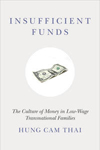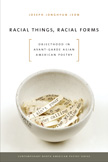Alfred Flores, Associate Professor of Asian American Studies at Harvey Mudd College has received another honorable mention award (adult non-fiction) for his book, Tip of the Spear: Land, Labor, and US Settler Militarism in Guåhan, 1944–1962 (Cornell University Press, 2023), from the Asian Pacific American Librarians Assocation. Here is the link to the award.
Prof. Flores has also received an Asian American and Pacific Islander Voices and Stories faculty fellow grant (2025-2026) from the ASIANetwork (consortium of liberal arts colleges) to support his partnership with the Marshallese Youth of Orange County (MYOC). The mini-grant is funded by the Mellon Foundation which will provide him with funds to conduct oral history interviews with the Marshallese of southern California.
If you are interested in learning more, here is information about the ASIANetwork and the Marshallese Youth of Orange County:
https://m.asianetwork.org/programs/aapi-voices-and-stories/
https://www.myocnetwork.org/



